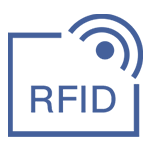![TE Connectivity B81516F14-37S1[V001] TE Connectivity B81516F14-37S1[V001]](https://res.utmel.com/Images/ParentCategory/connectorsinterconnects.png)

TE Connectivity B81516F14-37S1[V001]
Manufacturer No:
B81516F14-37S1[V001]
Tiny WHSLManufacturer:
Utmel No:
2460-B81516F14-37S1[V001]
Package:
-
Description:
B81516F14-37S1[V001] datasheet pdf and Circular Connectors product details from TE Connectivity stock available at Utmel
Quantity:
Delivery:





Payment:











In Stock : Please Inquire
Please send RFQ , we will respond immediately.
United States
China
Canada
Japan
Russia
Germany
United Kingdom
Singapore
Italy
Hong Kong(China)
Taiwan(China)
France
Korea
Mexico
Netherlands
Malaysia
Austria
Spain
Switzerland
Poland
Thailand
Vietnam
India
United Arab Emirates
Afghanistan
Åland Islands
Albania
Algeria
American Samoa
Andorra
Angola
Anguilla
Antigua & Barbuda
Argentina
Armenia
Aruba
Australia
Azerbaijan
Bahamas
Bahrain
Bangladesh
Barbados
Belarus
Belgium
Belize
Benin
Bermuda
Bhutan
Bolivia
Bonaire, Sint Eustatius and Saba
Bosnia & Herzegovina
Botswana
Brazil
British Indian Ocean Territory
British Virgin Islands
Brunei
Bulgaria
Burkina Faso
Burundi
Cabo Verde
Cambodia
Cameroon
Cayman Islands
Central African Republic
Chad
Chile
Christmas Island
Cocos (Keeling) Islands
Colombia
Comoros
Congo
Congo (DRC)
Cook Islands
Costa Rica
Côte d’Ivoire
Croatia
Cuba
Curaçao
Cyprus
Czechia
Denmark
Djibouti
Dominica
Dominican Republic
Ecuador
Egypt
El Salvador
Equatorial Guinea
Eritrea
Estonia
Eswatini
Ethiopia
Falkland Islands
Faroe Islands
Fiji
Finland
French Guiana
French Polynesia
Gabon
Gambia
Georgia
Ghana
Gibraltar
Greece
Greenland
Grenada
Guadeloupe
Guam
Guatemala
Guernsey
Guinea
Guinea-Bissau
Guyana
Haiti
Honduras
Hungary
Iceland
Indonesia
Iran
Iraq
Ireland
Isle of Man
Israel
Jamaica
Jersey
Jordan
Kazakhstan
Kenya
Kiribati
Kosovo
Kuwait
Kyrgyzstan
Laos
Latvia
Lebanon
Lesotho
Liberia
Libya
Liechtenstein
Lithuania
Luxembourg
Macao(China)
Madagascar
Malawi
Maldives
Mali
Malta
Marshall Islands
Martinique
Mauritania
Mauritius
Mayotte
Micronesia
Moldova
Monaco
Mongolia
Montenegro
Montserrat
Morocco
Mozambique
Myanmar
Namibia
Nauru
Nepal
New Caledonia
New Zealand
Nicaragua
Niger
Nigeria
Niue
Norfolk Island
North Korea
North Macedonia
Northern Mariana Islands
Norway
Oman
Pakistan
Palau
Palestinian Authority
Panama
Papua New Guinea
Paraguay
Peru
Philippines
Pitcairn Islands
Portugal
Puerto Rico
Qatar
Réunion
Romania
Rwanda
Samoa
San Marino
São Tomé & Príncipe
Saudi Arabia
Senegal
Serbia
Seychelles
Sierra Leone
Sint Maarten
Slovakia
Slovenia
Solomon Islands
Somalia
South Africa
South Sudan
Sri Lanka
St Helena, Ascension, Tristan da Cunha
St. Barthélemy
St. Kitts & Nevis
St. Lucia
St. Martin
St. Pierre & Miquelon
St. Vincent & Grenadines
Sudan
Suriname
Svalbard & Jan Mayen
Sweden
Syria
Tajikistan
Tanzania
Timor-Leste
Togo
Tokelau
Tonga
Trinidad & Tobago
Tunisia
Turkey
Turkmenistan
Turks & Caicos Islands
Tuvalu
U.S. Outlying Islands
U.S. Virgin Islands
Uganda
Ukraine
Uruguay
Uzbekistan
Vanuatu
Vatican City
Venezuela
Wallis & Futuna
Yemen
Zambia
Zimbabwe
You may place an order without registering to Utmel.
We strongly suggest you sign in before purchasing as you can track your order in real time.
For your convenience, we accept multiple payment methods in USD, including PayPal, Credit Card, and wire transfer.
RFQ (Request for Quotations)It is recommended to request for quotations to get the latest prices and inventories about the part.
Our sales will reply to your request by email within 24 hours.
1. You'll receive an order information email in your inbox. (Please remember to check the spam folder if you didn't hear from us).
2. Since inventories and prices may fluctuate to some extent, the sales manager is going to reconfirm the order and let you know if there are any updates.
- TypeParameter
- Lifecycle Status
Lifecycle Status refers to the current stage of an electronic component in its product life cycle, indicating whether it is active, obsolete, or transitioning between these states. An active status means the component is in production and available for purchase. An obsolete status indicates that the component is no longer being manufactured or supported, and manufacturers typically provide a limited time frame for support. Understanding the lifecycle status is crucial for design engineers to ensure continuity and reliability in their projects.
Production (Last Updated: 1 week ago) - Shell Material
The "Shell Material" parameter in electronic components refers to the material used to encase or cover the internal components of the device. This material is chosen based on various factors such as durability, heat resistance, electrical insulation properties, and environmental considerations. Common shell materials include plastics, metals, and ceramics, each offering different levels of protection and performance characteristics. The choice of shell material can impact the overall reliability, safety, and functionality of the electronic component in different operating conditions.
Aluminium - RoHSNon-Compliant
- Insulation MaterialsSilicone
- Connector Type
Connector Type in electronic components refers to the specific design and configuration of the connector used to establish electrical connections between different devices or components. This parameter describes the physical shape, size, and layout of the connector, as well as the number and arrangement of pins or contacts. Common connector types include USB, HDMI, RJ45, and D-sub connectors, each serving different purposes and applications. Understanding the connector type is crucial for ensuring compatibility and proper functionality when connecting electronic devices together.
Plug, Socket - Number of Positions37
- Max Operating Temperature
The Maximum Operating Temperature is the maximum body temperature at which the thermistor is designed to operate for extended periods of time with acceptable stability of its electrical characteristics.
200 °C - Min Operating Temperature
The "Min Operating Temperature" parameter in electronic components refers to the lowest temperature at which the component is designed to operate effectively and reliably. This parameter is crucial for ensuring the proper functioning and longevity of the component, as operating below this temperature may lead to performance issues or even damage. Manufacturers specify the minimum operating temperature to provide guidance to users on the environmental conditions in which the component can safely operate. It is important to adhere to this parameter to prevent malfunctions and ensure the overall reliability of the electronic system.
-65 °C - Number of Contacts37
- Operating Supply Voltage
The voltage level by which an electrical system is designated and to which certain operating characteristics of the system are related.
600 V - Plating
In the context of electronic components, "Plating" refers to a process of depositing a thin layer of metal onto a substrate material. This plating is often used to enhance the component's performance, durability, and conductivity. The plating material can vary depending on the specific requirements of the component, with common choices including gold, silver, tin, and nickel. Plating can also be used for corrosion resistance, solderability, and to improve the overall appearance of the component. Overall, plating plays a crucial role in ensuring the reliability and functionality of electronic components in various applications.
Nickel - Number of Power Positions37
- Insulation Diameter
The parameter "Insulation Diameter" in electronic components refers to the measurement of the diameter of the insulation material surrounding a conductor or wire within the component. This measurement is crucial for ensuring proper insulation and protection of the conductor from external factors such as moisture, heat, and electrical interference. A sufficient insulation diameter helps prevent short circuits, electrical leakage, and other potential hazards in electronic circuits. Manufacturers specify insulation diameter requirements to meet safety standards and ensure the reliable performance of the electronic component in various applications.
1.3716 mm - Preloaded
The parameter "Preloaded" in electronic components refers to a state where a certain amount of force or tension is applied to the component before it is put into use. This preloading helps to ensure that the component remains secure and stable during operation, especially in applications where there may be vibrations or other external forces acting on the component.Preloading can be achieved through various methods such as using springs, screws, or other mechanical means to apply the necessary force or tension to the component. By preloading the component, it can help to prevent issues such as loosening, shifting, or failure during operation, ultimately improving the reliability and performance of the electronic system.Overall, the preloaded parameter is an important consideration in the design and installation of electronic components, particularly in applications where stability and security are critical requirements. Proper preloading can help to enhance the overall durability and functionality of the electronic system.
No - Assembly Length
Assembly Length in electronic components refers to the measurement of the length of the component that is used for assembly purposes. It is a critical parameter that helps determine how the component will fit and function within a larger electronic system or circuit board. The assembly length is typically specified in the component's datasheet or technical specifications to ensure proper installation and compatibility with other components. It is important to consider the assembly length when designing and assembling electronic circuits to avoid any issues related to fit, clearance, or functionality.
25.95 mm - Durability Rating
Durability rating in electronic components refers to the ability of a component to withstand various environmental conditions and operational stresses over time without degradation in performance. It is a measure of the component's reliability and longevity under normal operating conditions. The durability rating typically takes into account factors such as temperature fluctuations, humidity, mechanical stress, and electrical load. Components with higher durability ratings are expected to have a longer lifespan and provide more consistent performance over time, making them suitable for applications where reliability is crucial. Manufacturers often provide durability ratings to help users assess the expected lifespan and performance of electronic components in different operating environments.
500 cycles - Feedthrough Type
Feedthrough Type in electronic components refers to the method by which signals or power are transmitted through the component. This parameter specifies the type of connection used to pass signals or power from one side of the component to the other. Common feedthrough types include coaxial feedthroughs, filtered feedthroughs, and hermetic feedthroughs. The choice of feedthrough type depends on the specific application requirements, such as signal frequency, power levels, and environmental conditions. Proper selection of the feedthrough type is crucial to ensure reliable and efficient performance of the electronic component in its intended application.
No















